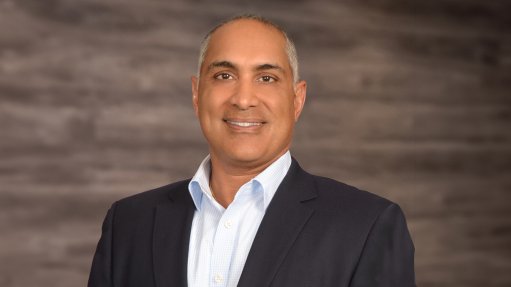
TESH DURVASULA ADC CEO Tesh Durvasula is connecting African businesses to the digital future
The digitalisation of African economies requires infrastructure, and Africa Data Centres (ADC) aims to make access to fully operational and protected data centres a reality for small, medium-sized and large enterprises that operate on the African continent – at present and for years to come.
ADC currently provides services to businesses in South Africa, Kenya and Nigeria, providing access to its infrastructure for the purpose of storing data in a secure environment.
The company adds that it places significant focus on expanding its data centre footprint to the rest of Africa, with plans to open data centres in Ghana and Morocco early in 2024 – all done in the name of “connecting more Africans to the digital future”, as well as allowing African businesses to receive greater benefits from the global market supply chain by connecting them to the world through information technology infrastructure.
“I always make the example that a Kenyan bean leaves Kenya for less than a shilling, and by the time it gets to a London, or a European café, it’s $5. “All that value creation was done by someone else. Africa must take a bigger chunk of that $5, and I think that can only happen if we create the infrastructure for those companies to get more value from the supply chain,” states ADC CEO Tesh Durvasula.
“We [ADC] need to get our data centres to the ten largest countries – ten largest economies – and that will help connect more Africans to the digital future.”
Three-Tier Strategy to Data Storage
ADC’s focus is on creating infrastructure for small, medium-sized and large African businesses to make the transition to cloud-based products and services for operations, as well as to ensure that businesses have access to the hardware that is required for cybersecurity applications. This is done by adopting a three-tier strategy.
Firstly, ADC ensures that it builds its data centre infrastructure to the “highest of industry standards”. Great emphasis is placed on ensuring that ADC’s products and services are highly dependable and optimally secure. This is achieved by maintaining high-quality engineering and design standards.
Secondly, it is of utmost importance that ADC is International Organisation for Standardisation-compliant. This means that the company ensures that it meets institutional requirements that will allow the company to be considered a “world-class” product or service provider.
Thirdly, the company invests a great deal of energy in ensuring that its products and services meet the desires and requirements of its clients.
“Think of financial institutions; think of healthcare, insurance, energy and mining. They have incredibly high standards for security, operations and dependability. And we must match those – in fact, we must surpass their standards to be their provider.”
Enhancing Business in Africa
ADC aims to enhance business on the African continent with its products and services, as it has firsthand experience and understanding of the various economies on the continent and the range of issues that each country faces.
To achieve this – firstly – ADC focuses on making its products and services accessible at an affordable price, so that any African business can make use of them.
Secondly, the company emphasises nurturing innovation from young individuals by strategically establishing data centres in locations that are seen as African innovation hubs. After all, innovation is a driving force in the African economy, and international organisations are not doing this for African people, says Durvasula.
Maintaining Sustainable Practice
With regard to conducting sustainable practices and upholding social responsibility in Africa, ADC states that it goes “far and beyond expectations”.
“We’re constantly looking at lowering our Power Usage Effectiveness. So, previously, for every kilowatt of energy the data centre used, it needed another kilowatt for cooling. Now, we’ve been able to reduce it to under 0.5 kW per kilowatt of energy used,” says Durvasula.
In addition, ADC has made a commitment to using as little water as possible for its data systems. This is done by only filling up its systems once for cooling purposes, and never using more than what is required.
“We fill up our system once, and there’s very little evaporation over time, as ADC makes use of closed-loop systems. “Water is a very constrained resource in Africa, so we’re very conscious of using barely any water,” says Durvasula.
ADC is also implementing renewable-energy sources and is expecting a delivery of a 10 MW solar system for its operations in Cape Town. The company also aims to work with power providers to inject excess power back into the grid.
Encouraging Education, Job Creation
Durvasula says it is important that ADC gives back to host communities. Consequently, the company has promised to establish an internship programme for students in the industry at all major universities close to each of its data centres.
Graduates and students between the ages of 22 and 25 can receive on-the-job training during a six-month internship and decide whether they would like to continue thereafter. This ties in with the values held by ADC chairperson Strive Masiyiwa – a self-described humanitarian, as well as a philanthropist and businessman.